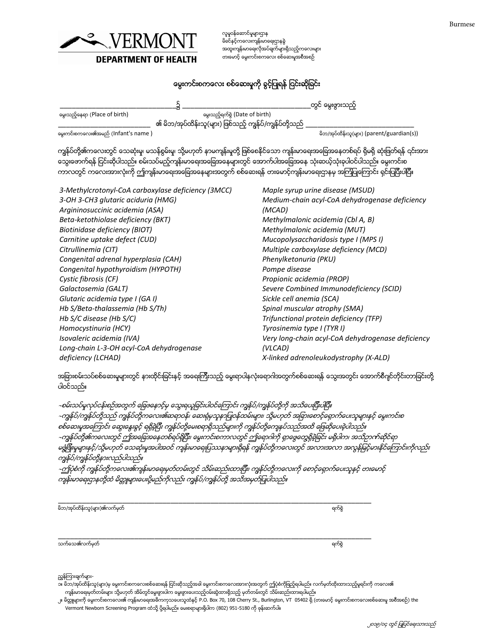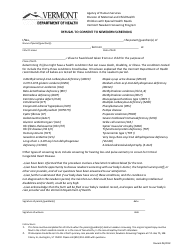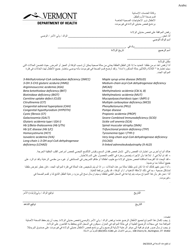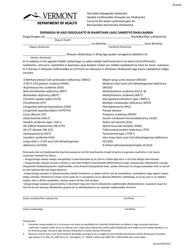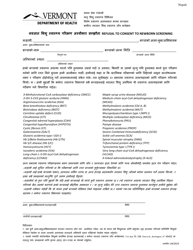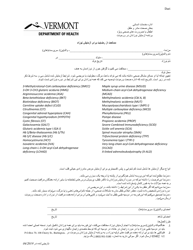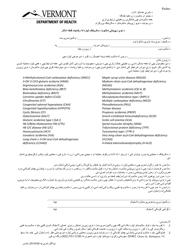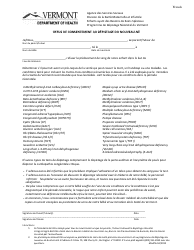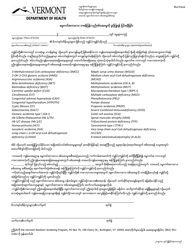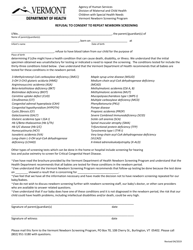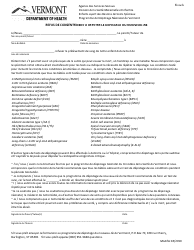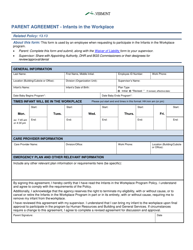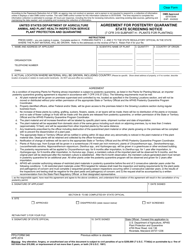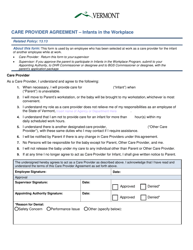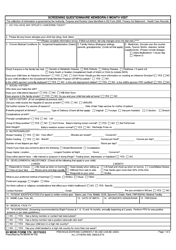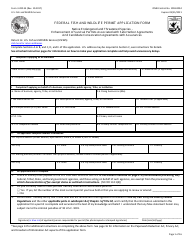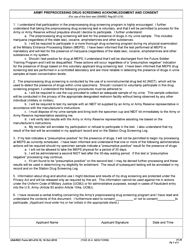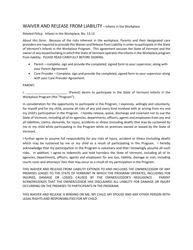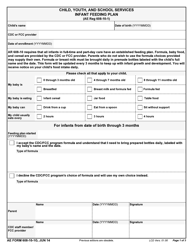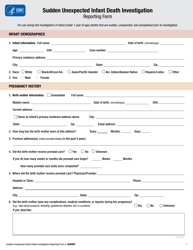Refusal to Consent to Newborn Screening - Vermont (Burmese)
This is a legal document that was released by the Vermont Department of Health - a government authority operating within Vermont.
The document is provided in Burmese.
FAQ
Q: What is newborn screening?
A: Newborn screening is a medical test that checks for certain genetic, metabolic, and structural disorders in newborn babies.
Q: Why is newborn screening important?
A: Newborn screening is important because it allows for early detection and treatment of potential health issues in babies, which can help prevent serious complications and disabilities.
Q: What does the refusal to consent to newborn screening mean?
A: Refusing to consent to newborn screening means that the parent or guardian is choosing not to have their baby tested for potential genetic, metabolic, and structural disorders.
Q: Can parents refuse newborn screening in Vermont?
A: Yes, parents have the right to refuse newborn screening in Vermont.
Q: Are there any risks associated with newborn screening?
A: There are generally no risks associated with newborn screening. The test involves a simple blood sample taken from the baby's heel.
Q: What are the benefits of newborn screening?
A: The benefits of newborn screening include early detection and treatment of potential health issues, which can lead to better long-term outcomes for the baby.
Q: What disorders can newborn screening detect?
A: Newborn screening can detect a wide range of disorders, including genetic conditions, metabolic disorders, and structural abnormalities.
Q: Is newborn screening mandatory in Vermont?
A: Newborn screening is not mandatory in Vermont, but it is strongly recommended for all babies.
Q: Can newborn screening help prevent disabilities?
A: Yes, newborn screening can help prevent disabilities by allowing for early detection and treatment of potential health issues.
Q: Is newborn screening covered by insurance?
A: In most cases, newborn screening is covered by insurance. It is recommended to check with your insurance provider for specific coverage details.
Form Details:
- Released on April 1, 2019;
- The latest edition currently provided by the Vermont Department of Health;
- Ready to use and print;
- Easy to customize;
- Compatible with most PDF-viewing applications;
Download a printable version of the form by clicking the link below or browse more documents and templates provided by the Vermont Department of Health.
